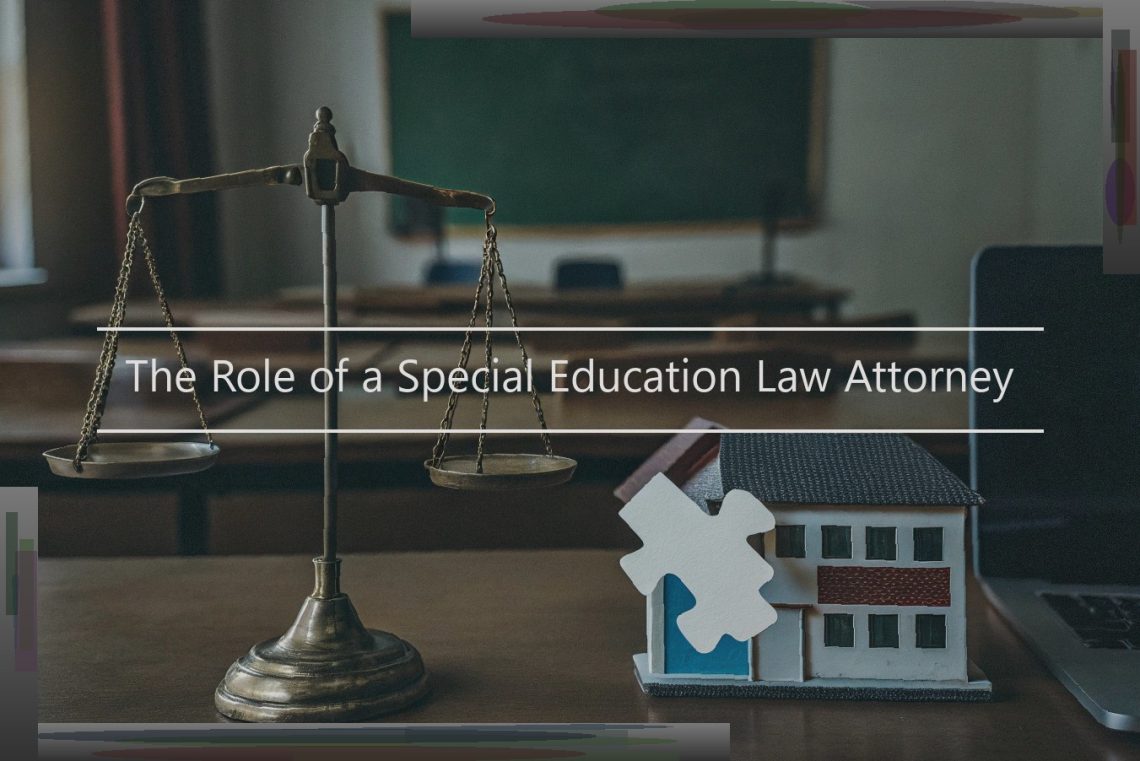
The Role of a Special Education Law Attorney
What Does Special Education Law Mean?
Special Education Law is a branch of education law that deals with the education of children with disabilities. It encompasses a wide range of legal issues related to the provision of education and services to children with special needs. The purpose of special education law is to ensure that children with disabilities have access to a free and appropriate public education in the least restrictive environment possible. This means that schools must provide individualized education programs (IEPs) that meet the unique needs of each child with a disability. IEPs are developed by a team of educators, parents, and other professionals who work together to assess the child’s strengths and weaknesses and to develop a plan for their education. The IEP must be reviewed and updated regularly to ensure that it continues to meet the child’s needs. In addition to IEPs, special education law also covers other legal issues related to the education of children with disabilities . This includes issues related to the evaluation and identification of students with disabilities, procedural safeguards to protect the rights of parents and students, and the provision of services to students with disabilities in private schools and residential facilities. One of the key principles of special education law is the concept of least restrictive environment, which requires schools to provide education to students with disabilities alongside their non-disabled peers to the maximum extent appropriate. This means that students with disabilities should be included in general education classes and should have access to the same educational opportunities as their non-disabled peers. Special education law is constantly evolving and changing as new laws and court cases are decided. It is important for parents and educators to stay informed about these changes and to understand the rights and responsibilities of schools and families under special education law.
The Importance of Hiring a Special Education Law Attorney
There are several reasons why parents, grandparents, and guardians may decide to seek the assistance of a special education law attorney. One reason being that they may be facing a legal dispute with the school with regards to the services or protections the child should be receiving. Parents may also feel the school is not following the law. A special education law attorney can educate parents about their rights and help them navigate the IEP process along with forming an advocacy strategy. A good attorney will be knowledgeable about the protections afforded to children with special needs under federal and state laws. Many attorneys will provide a free initial consultation, and then based on the type of help needed by the parents, charge hourly rates or a flat fee.
How a Special Education Law Attorney Can Assist You
A special education law attorney plays an vital role in helping students receive the services they need, fighting for proper placement, serving as an advocate at IEP meetings, and seeking accommodation and other types of support. When things don’t go as planned, a special education law attorney can step in to negotiate with the school district or even pursue matters through legal action.
A special education law attorney provides a variety of services, including:
Special Education Services: A special education law attorney can advocate for services appropriate to a student’s individual needs, ensuring that the school district performing an in-home evaluation to identify the child’s needs.
IEP Advocacy: An IEP is a legal document that defines the services a child should receive, and a special education law attorney can represent a family in negotiations aimed at crafting an IEP that meets the student’s individual needs. A special education attorney can ensure that the IEP is comprehensive and that services are delivered.
Due Process: If an IEP or services are denied, a special education law attorney can help families seek Due Process, an administrative law procedure that allows parents and school districts to file complaints against one another.
Litigation: In some cases, litigation is necessary to protect a student’s rights. A special education law attorney can represent a family in any legal dispute, helping to ensure that their due process rights are observed and their child receives the educational services and support they need.
How to Locate a Special Education Law Attorney
When deciding on whether to hire a special education law attorney, it is important to find an attorney that is exceptionally familiar with issues involving special education. Many state and federal laws govern the educational rights of disabled students. Familiarizing yourself with the various laws applicable to your child’s situation is beneficial, but you can also rely on an attorney to explain complex laws. An experienced special education law attorney will be more familiar with the applicable laws than the average person and have ideas on the best approach to take. This is why so many people hire special education law attorneys to help them understand the process and their rights. An experienced attorney will not only explain your rights, but they can also assist you by developing a strategy to pursue any needed remedies such as mediation, due process, or a request for a settlement.
Experience is the key when deciding on whether to hire a special education law attorney. An attorney who has handled similar cases in the past will be better prepared to advocate for your needs. While many individuals may have experience with IEPs, 504 Plans, FAPE, and related issues, some individuals will not have the same level of experience. When choosing an attorney, make sure they are experienced with these issues. Some states require education law attorneys to be certified when dealing with special education law portions of their practice. Finding an attorney in your state that possesses this certification can be very helpful.
Although many people turn to a search engine when viewing the backgrounds of possible attorneys, it is important to conduct research based on your personal situation. Not every special education law attorney has the same level of experience in every area of special education. Many special education law attorneys have experience in multiple areas while others may have a limited focus or experience. For example, some special education attorneys may have experience with special education funding, but still be relatively inexperienced. It is important to conduct research to determine if the attorney is intimately familiar with your child’s needs and whether they are experienced with the particular school district. Ideally, you want to find an attorney familiar with your school district. Having an attorney experienced with a particular school district can help to expedite much of the process involved to secure a remedy.
Questions to Ask a Special Education Law Attorney
Before making a decision, it is important to ask the following questions:
How often will you meet with me?
The individual with whom you are speaking is going to be the one working on your case. They may not always have the time for a one-on-one meeting, and some of your case review may be accomplished by telephone or email. Make sure you are comfortable with how often and in what ways you will be communicating.
If they are not the ones handling your case, then ask to meet the attorney who will be handling your case. An attorney may use junior associates, paralegals and administrative assistants to handle your file. Ask who will be doing the work, such as contacting the school, filing requests and attending meetings.
What is your fee structure?
Some lawyers want money upfront, others take payment installments , and some will take on a case pro bono, or free of charge. Make sure you are both on the same page when it comes to paying for their services. Also ask them if there are any early termination fees.
Do I have to pay for every minute you are involved in my case?
Some lawyers charge by the minute and others have a set fee per hour. Determine if the lawyer needs to be involved in the whole case or could have a set fee for specific portions of the case, such as attending IEP meetings. Sometimes it may just be better to hire a lawyer for specific parts of the process.
How long have you worked in special education law?
Some lawyers focus only on one area of law, like special education. Others are generalists and handle all types of cases. If you have a specific problem you are looking for assistance with, it is always better to work with a specialist.
How to Prepare for Your Initial Consultation
Before your first meeting with a special education law attorney, take some time to prepare and gather any relevant documents on your child, such as IEPs, report cards, evaluations, and notes from meetings with teachers, principals, or your child’s therapist. It is also helpful to note what specific needs your child has, what services your child has received in the past, or any diagnoses that have been received.
Prior to meeting with the attorney, it is crucial to determine what type of relief you are seeking, as well as your desired outcome. Do you just want an evaluation to be paid, or are you looking for a particular service? Are you seeking enrollment in a private school that is optimized for her or his unique needs? It is always best to be clear about the solution needed at the initial meeting.
Gathering appropriate documentation for your child can be challenging, especially if you have not requested copies of these documents until this point. However, this can be a useful first step toward completing the evaluation process. For example, obtaining prior IEPs is important to see how services have changed and progressed over time. If your child has recently received a diagnosis of Asperger syndrome, autism, or another developmental disability, this can also impact the meeting.
Case Studies: Successful Outcomes
Jordan was a 6th grade student diagnosed with Autism Spectrum Disorder (ASD). His parents sought the assistance of a Special Education Law attorney because Jordan was not receiving all of the services outlined in his IEP. The school staff kept adding more goals and providing part-time services. The IEP no longer reflected all of the supports that were originally outlined. The attorney advocated for his inclusion in a specialized program within the district that serves similar children with ASD. Additionally, the attorney was able to work with the district to develop goals specific to the 6th grade ASD program, which were then included in his IEP.
Isaiah was confined to his bed due to several medical issues, one being Cystic Fibrosis. Unfortunately, this resulted in him missing several consecutive months of school. His parents learned of a free online education program, called two and learn. This program is targeted at children who have long term medical challenges and provides individualized education within a hospital/homebound setting . The parents hired a Special Education Law attorney to help enroll their son in this program and to obtain an online computer/lap top through the school district. By the age of 5, Isaiah was reading above the first grade level, writing at a second grade level, and doing math at a third grade level. Although he had not attended school, he was making great strides and exceeding grade level performance.
Bella was a 14-year-old with Muscular Dystrophy. She was looking forward to being a freshman in high school, however her parents knew that her mobility issues would create a barrier when it came to traveling from class to class. After researching the issue, Bella’s parents found out that there was an online option available to public high school students. They contacted school guidance counselors about the option but were told that it was not available in Bella’s district. Bella’s parents contacted a Special Education Law attorney who provided them with the necessary resources and information to advocate on their daughter’s behalf. Bella will be attending public high school in the online setting as a freshman in the upcoming academic year.




